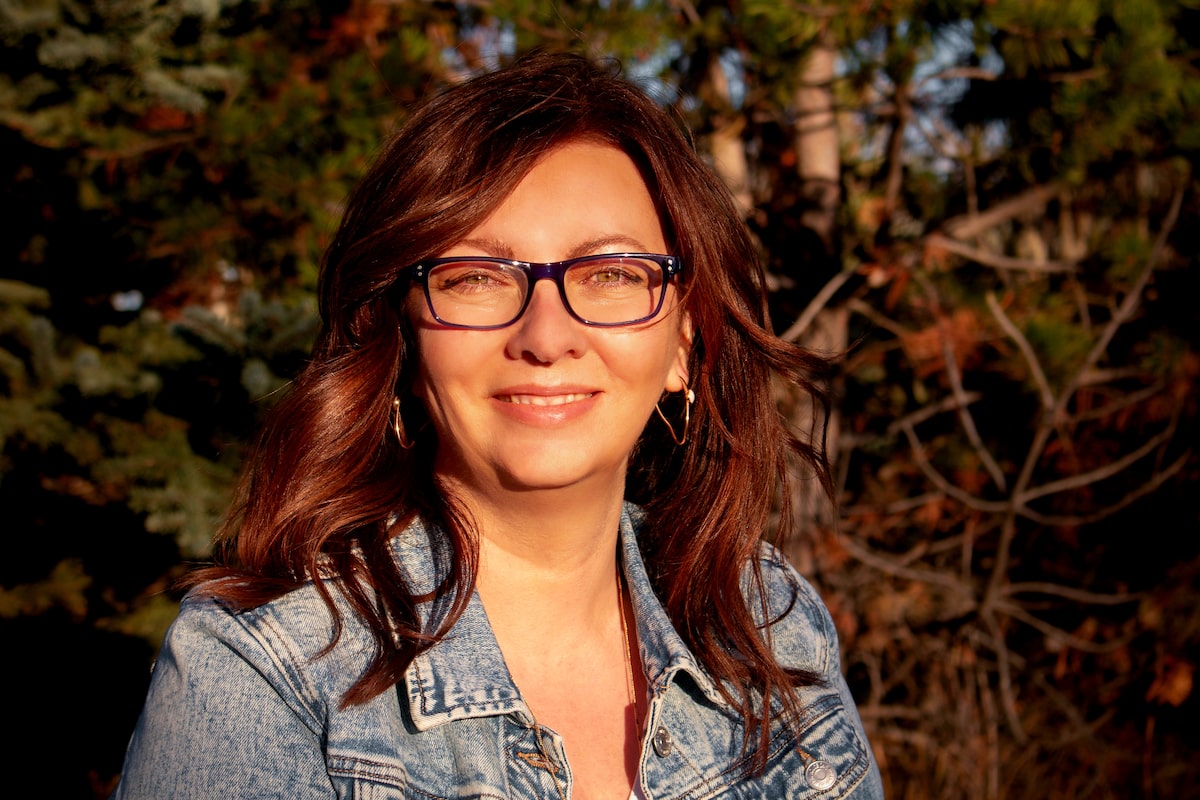Lori Curtiss, certified financial planner, certified financial behaviour specialist, and founder of A Money Maker Mindset in Calgary.Supplied
In the Behind the Advice series, Globe Advisor asks advisors about their relationship with money from a young age, lessons learned over the years and how their experiences influence the advice they give to clients. We’ve also launched a Behind the Advice podcast – find all the episodes here.
Lori Curtiss, certified financial planner, certified financial behaviour specialist, and founder of A Money Maker Mindset in Calgary, talks about growing up the youngest of five kids, becoming a mom at age 18, and the career-day speaker that inspired her to pursue a career in financial services:
Describe your upbringing.
I grew up on a grain farm in Northern Alberta, a community called Crooked Creek about an hour outside of Grande Prairie, the youngest of five kids. My dad farmed full-time, and my mom pieced together odd jobs around the community to help make ends meet.
Life was simple and laid back, but money was always tight. I watched my parents struggle with money constantly, and it always felt like there just wasn’t enough to go around. I remember at least one trip to the food bank. We grew up very poor, but when I look back, I don’t think I realized we were poor; I just knew other people had nicer things.
Those early years instilled in me a strong sense of resilience and shaped my perspective on money. From a young age, I believed that money was rare, something you had to be smart about and educated to manage well. That belief drove me to work hard and learn as much as I could about how money really works.
Describe your first money lesson.
Do you remember Popples? I was about four years old in Zellers while we were back-to-school shopping for my older siblings. I wanted a Popple toy so badly, but my mom said, ‘No, I can’t afford it,’ even though our cart was full of supplies.
I asked why everyone else was getting something and not me, and she explained that they needed those things for school, while I got the gift of having the house to myself when they were gone.
I remember feeling sad, but also trying to convince myself that I had the better deal. That moment taught me that money is about making choices and setting priorities, not just fulfilling wants.
What did you want to be when you grew up, and how did you get into financial services?
As a farm kid, I dreamed big; I wanted to be a lawyer and live in downtown Toronto. However, my life changed when I became pregnant at age 18.
I needed to stay in Grande Prairie to be close to family who could help me. At the time, the local college only offered two degree programs: nursing and commerce. As I tend to panic at the sight of blood, nursing wasn’t an option for me.
I was in the middle of my bachelor of commerce degree when a financial planner from Royal Bank of Canada came to speak at career day.
He shared how he helped people understand their finances, invest, and how rewarding it was. I was hooked. That was the moment I realized I could combine my love for numbers with my desire to help people.
Was there a particular event or period in your life that influenced how you approach money?
I remember being 18 and sitting in the car in the parking lot outside the grocery store after having to put some items back. The only food I could afford was macaroni noodles and tomato soup, as well as diapers and formula for my newborn.
I remember I was in the front seat crying, the baby was in the backseat crying, and I felt crushing shame because I chose to have this baby. I said I could do it, and I felt that I was failing so miserably at it.
That moment is burned into my brain. I promised myself right then that I would never feel that powerless again.
What decision around money and investing made the greatest impact on your life?
When I was completing my MBA in financial psychology at age 44, I participated in an exercise called ‘The Money Egg.’ It involved mapping out all my financial flashpoints, the emotions tied to them and the lessons I learned.
At the end, you finish the sentence, ‘The story about money for me is…’ That was the first time I saw clearly how controlling I was with money and how much it was hurting my relationship.
The exercise gave me the language to explain my behaviour to my partner, and it helped me find empathy for his very different money story. That experience changed both my finances and my relationship.
What is the biggest money mistake you’ve made, and what did you learn from it?
Falling for lifestyle creep. The more I earned, the bigger the house, the nicer the car, the more toys I collected. But instead of feeling successful, I felt trapped and stressed.
Learning about values-based spending shifted everything for me. Now, I spend on what truly matters, and I feel more content and free. It gave me the freedom to leave my position at a large wealth management firm and start my own advice-only planning company.
What advice do you have for someone who wants to enter your business?
Know that there’s a growing need for advice-only financial planners. It’s not an easy path; you’re independent, you’re building trust from the ground up, but the work is deeply rewarding. You’re not just managing money, you’re helping people rewrite their financial stories.
This interview has been edited and condensed.
